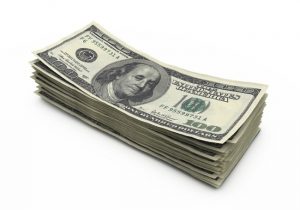 We as South Africans are fond of going out of our way to do things in the spirit of “saving” on expenses. On Tuesday evening, the petrol price went up by 93c per liter – apparently the single biggest price jump ever. True to form, the petrol stations were packed with eager customers waiting to fill up their vehicles. This got me thinking: when is the saving worth the effort?
We as South Africans are fond of going out of our way to do things in the spirit of “saving” on expenses. On Tuesday evening, the petrol price went up by 93c per liter – apparently the single biggest price jump ever. True to form, the petrol stations were packed with eager customers waiting to fill up their vehicles. This got me thinking: when is the saving worth the effort?
Meet Mark:
Mark hears the petrol price will jump by 93c per liter, so he decides to fill up at the petrol station. After waiting in the petrol queue for around 15 minutes, it is his turn to fill up. The petrol attendant fills his car with around 40 liters of petrol. Mark is chuffed – he has saved R40. Waiting in the petrol queue is thirsty work, so he goes into the shop and buys a two liter Coke and a packet of chips. R40 ….
This is exactly what we all do. In the behavioural finance world it is called “mental accounting” – we group separate expenses into separate “mental accounts” without thinking about the big picture.
What can we learn from this?
One impulse buy can undo all the work you have done in saving on items.
It is one thing to watch your expenses and save on purchases whenever you can. It is quite another to have the self-discipline not to spend the money you saved. That 10 rand you saved on one purchase is exactly the same 10 rand you are spending on something stupid.
If you “save” money on a purchase you should go to a bank and deposit the money in a savings account.
Work at turning your “savings” into actual savings. It is no use saving all this money on purchases, but never seeing the results in your bank accounts. “Saving” by purchasing has a better chance of leaving you broke than financially free.
It is more effective to negotiate the big items, than to nickel-and-dime the small ones.
If you purchase a R200,000 car instead of a R220,000 car (or negotiate down to that price) you have just received the equivalent of 2 years worth of petrol for free! Think of how much price comparison you have to do on groceries, for instance, to get to that amount of saving. Fight like hell for a 10% discount on a big-ticket item – it will make a huge difference to your budget.
Saving and frugal living are important components of an overall plan to reach Financial Freedom. Be sure to go at it the right way.
Kevin Mzansi
0 Comments
Leave A Comment